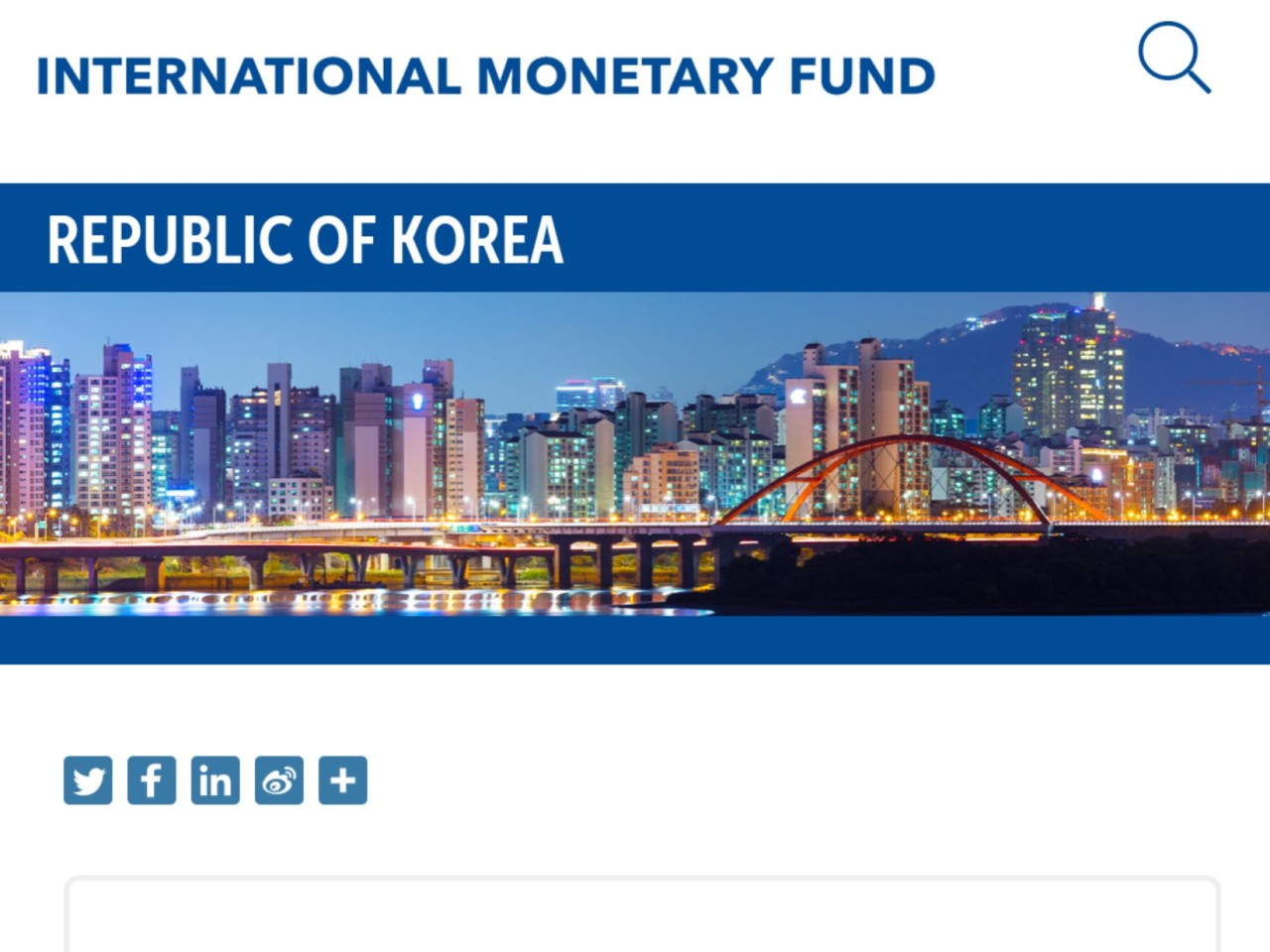 |
A capture of the homepage of the International Monetary Fund, headquartered in Washington, D.C. (IMF) |
SEJONG -- The International Monetary Fund on Tuesday predicted that the growth of the Korean economy would stay in the mid 2 percent range this year in the wake of the war between Ukraine and Russia, alongside the ongoing pandemic.
In its latest world economic outlook report, the IMF revised down its forecast on the gross domestic product growth of Korea by 0.5 percentage point from its earlier suggestion of 3 percent to 2.5 percent.
The figure is lower than the growth prediction of 2.7 percent suggested by Fitch Ratings and Moody’s Investors Service, separately, in March and tied with S&P Global Ratings’ 2.5 percent.
In contrast, the Ministry of Economy and Finance of Korea and the Bank of Korea have yet to revise their growth target of the 3.1 percent predicted in December and 3 percent in February, respectively.
In its “Private Sector Debt and The Global Recovery” analysis, the US-based organization classified South Korea as one of the “advanced economies.”
It predicted that the group of advanced economies -- including the US, Canada, the eurozone nations, the UK, Korea and Japan -- would post a 3.3 percent growth this year collectively. In January, the IMF forecast a 3.9 percent growth.
It revised down its GDP growth outlook on the US economy by 0.3 percentage point to 3.7 percent, the eurozone by 1.1 percentage points to 2.8 percent, the UK by 1 percentage point to 3.7 percent and Japan by 0.9 percentage point to 2.4 percent.
Among the emerging market economies, China was projected to grow 4.4 percent, which was lower than the organization’s earlier forecast of 4.8 percent.
As a noteworthy case, the IMF cut its prediction on Russia, which invaded Ukraine on Feb. 24, by 11.3 percentage points from 2.8 percent to a negative growth of 8.5 percent.
It said the 2022 world economy would expand 3.6 percent, compared to its January prediction of 4.4 percent.
While the IMF did not make particular comments on Korea in its publication, Korea’s Finance Ministry said the organization highlighted a hike in raw materials prices and a glitch in global supply of products from the war in Ukraine, rising inflationary pressure and tighter monetary policies of major economies as major downside risks.
The IMF said that “a continuation of war in Ukraine -- a major producer of wheat and corn -- and falling Russian exports could fuel an additional surge in world cereal prices; adverse weather and fertilizer prices remain sources of upside risk for all food prices.”
The possible emergence and spread of a new COVID-19 variant has also been picked as a downside risk for several countries.
“Although the original omicron strain ended up being relatively mild in terms of severe illness for the vaccinated, it is too soon to assess the threat its subvariants pose,” IMF said. “Although conditions are improving, the pandemic may yet take another turn for the worse -- as seen, for example, with recent rising caseloads in China and elsewhere in the Asia-Pacific region.”
Meanwhile, the IMF maintained its outlook on the 2023 growth of Korea at 2.9 percent, though it revised down its forecast for the world economy from 3.8 percent to 3.6 percent.
It slashed the outlook on the US economy by 0.3 percentage point to a 2.3 percent growth, the eurozone economies by 0.2 percentage point to 2.3 percent, the UK by 1.1 percentage points to 1.2 percent.
In contrast, it revised upward the 2023 outlook on Japan from the earlier 1.8 percent to 2.3 percent.
By Kim Yon-se (
kys@heraldcorp.com)




![[Today’s K-pop] Blackpink’s Jennie, Lisa invited to Coachella as solo acts](http://res.heraldm.com/phpwas/restmb_idxmake.php?idx=644&simg=/content/image/2024/11/21/20241121050099_0.jpg)



